This website will look much better in a web browser that supports web standards, but it is accessible to any browser or Internet device.
| Natalia Balcázar ENVIRO pro |
|
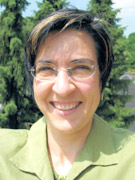 |
Natalia Balcázar is foundation director of ENVIRO pro – European Environmental Project management in Duisburg , Germany . She studied Geological Sciences at the Complutense University in Madrid and made in 1992 her doctoral thesis on “Environmental Management of Siderurgical By-products” at the Alcalá University in Madrid , Spain , in the framework of an ECSC project. After her PhD, she went in 1994 to Germany with a post-doc DAAD fellowship and stay at the same research institute (Forschungsgemeinschaft Eisenhüttenschlacken e.V.) further with a Marie Curie individual fellowship. She worked afterwards at the Ruhr-University Bochum and at a private environmental consulting in Duisburg. Since her arrival to Germany she has been working also at the women network Connecta – Das Frauennetzwerk e.V. in the area of Gender Mainstreaming. After her Marie Curie Fellowship she participate as active member at the Marie Curie Fellowship Association (MCFA), a pan-European organisation of more than 3,000 former and current Marie Curie fellows. Actually she is member of the MCFA Advisory Board. Though her work at the MCFA and Connecta, she has get contact with several career positions and engaged herself on the motivation and advice of young researchers and students. She has participated in many European projects with partners from industry and research, being invited as speaker and organised conferences, workshops, etc. In the last years, she worked on project management in several environmental areas (water management –also with partners from Chile and Brasil-, ECOPROFIT ® , production integrated environmental protection (PIUS), etc.) with main interest also on the Gender Mainstreaming aspects associated to the projects. |
Ian Browne (Conference Chair) |
|
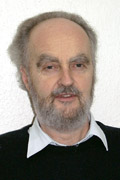 |
Ian is a Professor of Radio Astronomy at Jodrell Bank Observatory. He has coordinated two research training networks; one FP4 and one which is running at the moment in FP6. Ian's research interests are in using gravitational lensing to learn about the properties of distant galaxies. Ian is involved in the strategic organisation of the conference, having come up with the idea of hosting a Marie Curie Conference in Manchester. |
| Ana Mª Cerdeño-Tárraga Senior Computer Biologist, Pathogen Sequencing Unit, Wellcome Trust Sanger Institute |
|
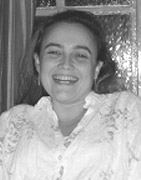 |
Ana Mª Cerdeño-Tárraga was born in Madrid (Spain) in 1968. She successfully completed her Biological Sciences Degree at the Universidad de Alcalá (Spain), which included an Erasmus year at the University of East Anglia (Norwich, UK). Soon after finishing her MSc in Biotechnology she was awarded an individual Marie Curie Fellowship under Framework Program IV in order to do her PhD at the Department of Genetics in The John Innes Institute on molecular microbiology. With her PhD finished and planning on staying in the UK but thinking about the exciting possibility of moving research fields, she moved to the Pathogen Sequencing Unit at the Welcome Trust Sanger Institute <http://www.sanger.ac.uk/Projects/Pathogens/> at the end of 1999, focusing her wok on the annotation and analysis of bacterial pathogen genomes - exchanging the laboratory bench for the computer desk - where she is now a Senior Computer Biologist and has authored and co-authored a number of papers published in high-impact scientific journals. She also coordinated the MCFA UK National group and vice-chaired and chaired the Marie Curie Fellowship Association for a number of years. |
Aigars Ekers |
|
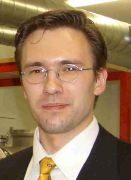 |
Aigars Ekers was born in Tukums, Latvia, 1971. He graduated from the University of Latvia with PhD in Physics in 1999. During his PhD studies, he went to University of Kaiserslautern in Germany, group of Prof. K. Bergmann, with a DAAD scholarship (1997-1998). After the defence Riga and a 6 months fellowship at the Institute of Physics of the Polish Academy of Sciences he returned to Kaiserslautern in 1999, where he completed his individual Marie Curie Fellowship (2000-2001, FP5). He stayed in Kaiserslautern as research associate till 2005. After that period, and with substantial support of the Universty of Kaiserslautern, a part of laboratory was transferred from Kaiserslautern to Riga and set up in the newly established Laser Centre of the University of Latvia. Presently he is the head of the Molecular Beam Laboratory of the Institute of Atomic Physics and Spectroscopy of the University, and lecturer at the Department of Physics. He also coordinates a MC Transfer of Knowledge project (2005-2009) in FP6, and has currently 3 active MC fellows in his laboratory. |
| Luke Georghiou Manchester Business School, The University of Manchester |
|
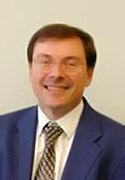 |
Luke Georghiou is a Director of PREST (Policy Research in Engineering, Science and Technology) at The University of Manchester and has been on its staff since 1977. Recent projects include several studies of industry-science relations, policy for international scientific co-operation, evaluation of foresight, and changes in public sector research institutions. During 1999 he chaired the Strategic Review of the EUREKA Initiative and during 1996 he chaired the evaluation of the European Union's Framework Biotechnology Programmes. He has recently chaired committees on the effectiveness of Direct measures for R&D support on behalf of the European Commission, and the Evaluation of Futur - the German Foresight programme and TEP - the Hungarian Foresight Programme. Other committee memberships include the Finnish Public Research Funding Evaluation Committee, the Medical Research Council Steering Group for the Monitoring and Evaluation of Research Funding Schemes, and the Steering Committee of the EIRMA UK Forum. He is a consultant to several Ministries in the UK, to the OECD, the European Commission, several foreign governments and major companies. His current teaching activities include an MSc unit and associated short course on Evaluation of Science and Technology Policies; the British Council High Level Seminar on S&T Policy and Management; and PhD supervision. |
| Silvia Giordani Trinity College Dublin |
|
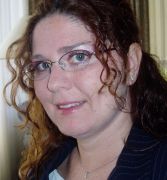 |
Silvia Giordani received a “Laurea” in Chemistry and Pharmaceutical Technology from the University of Milan (Italy) in 1999. She then moved to the Center for Supramolecular Science at the University of Miami (USA) for her graduate studies. After receiving a MS and a PhD in Chemistry, she moved back to Europe to work on a EU-funded Marie Curie Research Training Network project on “Template Grown Molecular Nanomaterials” as the young researcher. Her current research interests revolve around the design, synthesis and analysis of novel nanomaterials. |
| Tamara Grava International School for Advanced Studies (SISSA) |
|
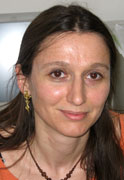 |
Tamara Grava received a Laurea in Physics in 1994 and a Ph.D in Mathematics in 1998. From 1998-2000 she was a post-doc at the University of Maryland and then she moved back to Europe as a Marie Curie Fellow at Imperial College, London. Since 2002 she is a researcher in Mathematical Physics at SISSA. Her main research interests are in the field of nonlinear waves and applications. She is now actively involved in a Marie Curie Research Training Network and a European Science Foundation Programme. |
| Jeremy Howells The University of Manchester |
|
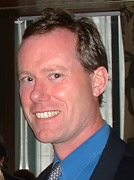 |
Jeremy Howells joined the University of Manchester from the Judge Institute of Management Studies at the University of Cambridge in 1996 to become a Senior Research Fellow at the PREST London Office, before taking a joint appointment with ESRC Centre for Research on Innovation and Competition (CRIC) at its foundation in 1997. He subsequently became a Director of PREST in 1999 and was appointed a Professor and a Director of CRIC in 2001. Research interests in the CRIC research programme centre on services and innovation and the role of knowledge, together with Research and Development (R&D) and technology transfer, in the innovation process. His work also explores the role that the consumption process plays in industrial innovation. Theoretical work has centred on the combinatorial role of services in innovation and consumption (exploring the process of encapsulation) and in the relationship between knowledge and innovation. Empirical research has centred on exploring innovation in services, R&D activity, technology transfer and industry academic links. |
| Jaroslav Mysiak Fondazione Eni Enrico Mattei |
|
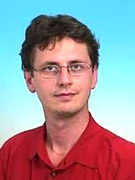 |
Jaroslav Mysiak is a senior researcher at Fondazione Eni Enrico Mattei, a research institute specialised in environmental economics and natural resource management. He graduated in Forestry Economics and Management from the Technical University of Zvolen (Slovakia) and received a PhD from the University of Göttingen (Germany). His past academic positions include teaching and carrying out research at Technical University Zvolen (Slovakia), University of Göttingen (Germany), University of Padova (Italy), University of Milan (Italy), UFZ Centre for Environmental Research Leipzig-Halle, GmbH (Germany) and Fondazione Eni Enrico Mattei (Italy). He was awarded with various mobility grants such as Marie Curie Fellowship, German Academic Exchange Service's triennial grant, Tempus mobility grant and several short-term grants from European Science Foundation. Jaroslav's research interests include geographic information science, environmental policies, Decision Support Systems development, economic valuation, environmental policies, uncertainty and risk assessment, and decision theory. Currently, he is chair of the Marie Curie Fellowship Association – an international and multidisciplinary network of mobile researchers, founded to promote the Marie Curie Actions programme and to provide a networking structure to Marie Curie fellows. |
Jason Rutter |
|
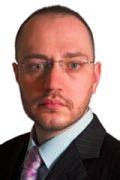 |
Jason Rutter was born just outside Manchester in 1969. He studied drama before completing his PhD on interaction and stand-up comedy at The University of Salford. A sociologist and Research Fellow in the ESRC Centre for Research on Innovation & Competition at the University of Manchester his current research and publication interests centre on social aspects of the use of leisure technologies especially issues of consumption, trust, and interaction within domestic spaces. These fall broadly into three empirical domains: computer gaming, counterfeits and computer-mediated interaction. He has published widely in these research areas and has the books "Understanding Digital Games" (Sage) and "Digital Games Industries" (Ashgate) due for publication this year. More info can be found at http://www.cric.ac.uk/cric/Jason_Rutter/. |
Karina Schulte |
|
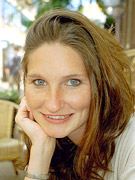 |
Karina Schulte is a tall person born in the Low Countries. She obtained her degree and PhD in physics at Groningen University before moving overseas to Nottingham. Here she worked as a post-doc on spectroscopy of all things Buckminsterfullerene, funded by EPSRC and the European NANOspectra network under FP5. Glad to keep her on for longer, she is now an Anne McLaren Research Fellow in the Nanoscience group at Nottingham (see www.nottingham.ac.uk/physics/research/nano/) stretching her research into working with nanotubes and other organic molecules. |
| Elvira Uyarra |
|
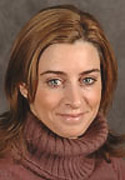 |
Elvira Uyarra was born in Bilbao (Spain) in 1973. She graduated in Economics from The University of the Basque Country (Spain) in 1996. She also holds an MSc in 'Technical Change and Regional Development' from Cardiff University. In 2001, for a period of 12 months, she was a Marie Curie Fellow at the centre for Policy Research on Engineering, Science and Technology (PREST), University of Manchester. After completing her PhD, with the title 'Innovation, Knowledge and Regional Development: implications for innovation policies in less favoured regions', she stayed in Manchester working as research associate at the Centre for Research on Innovation and Competition (CRIC). Presently she is a researcher at PREST at the University of Manchester. |